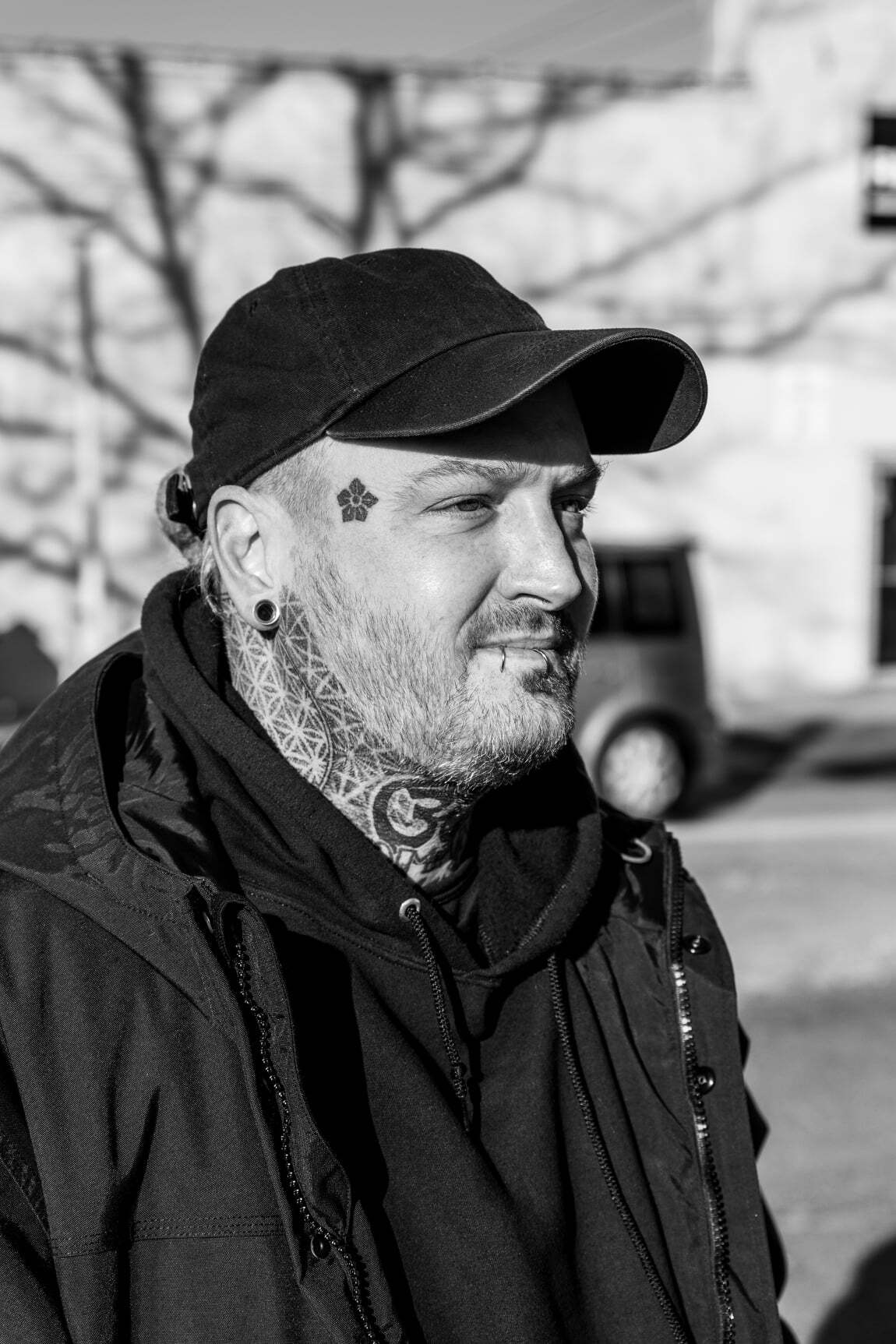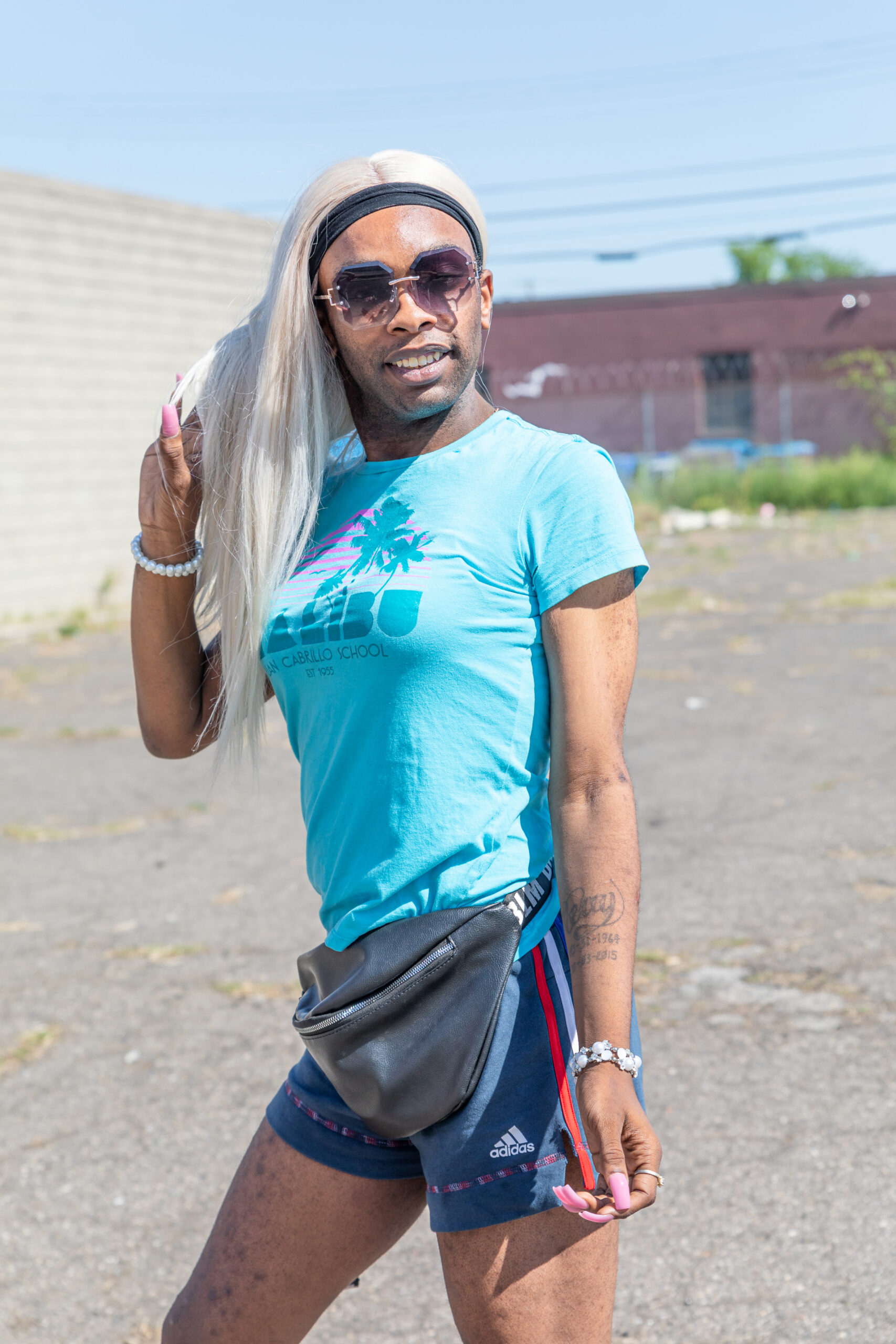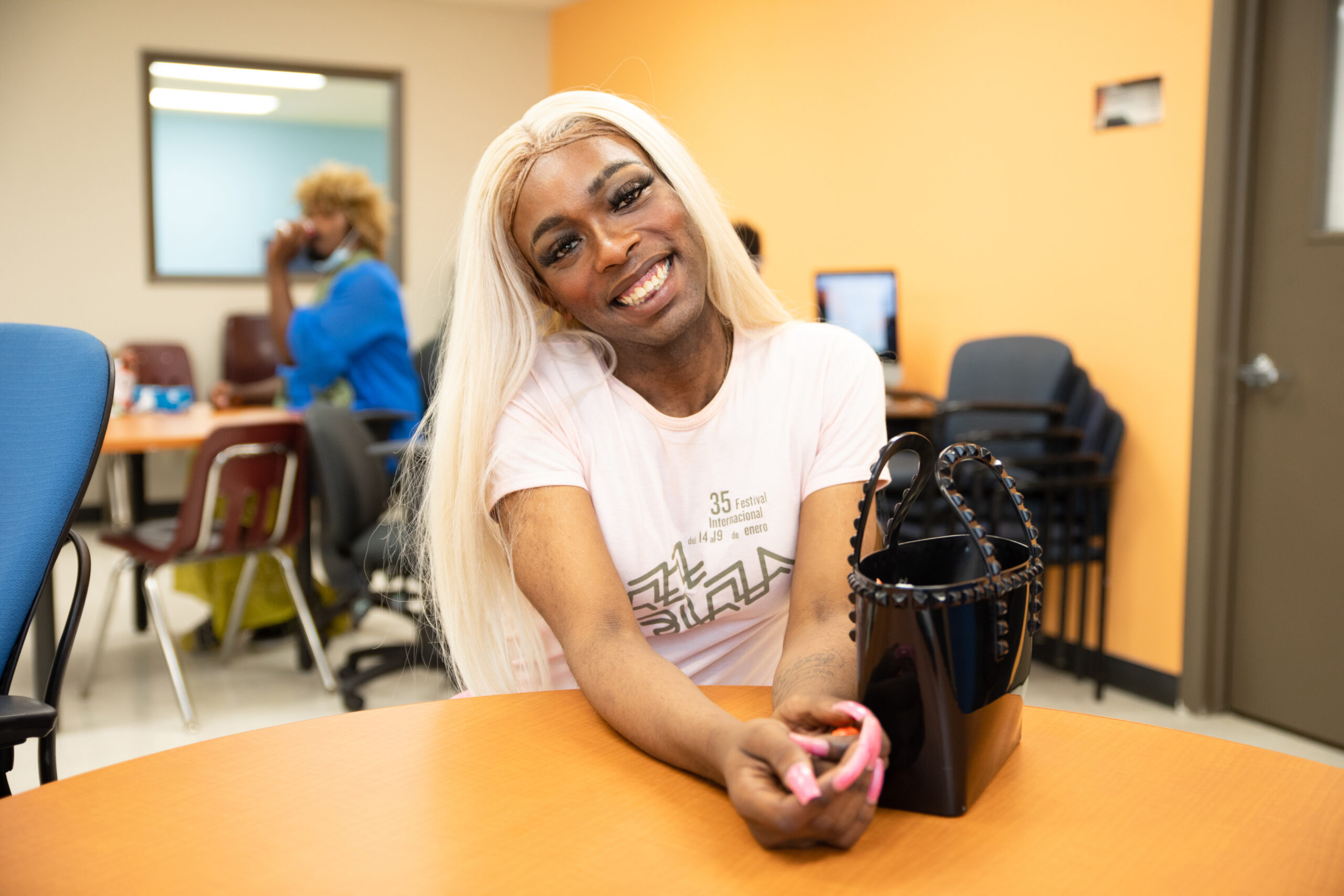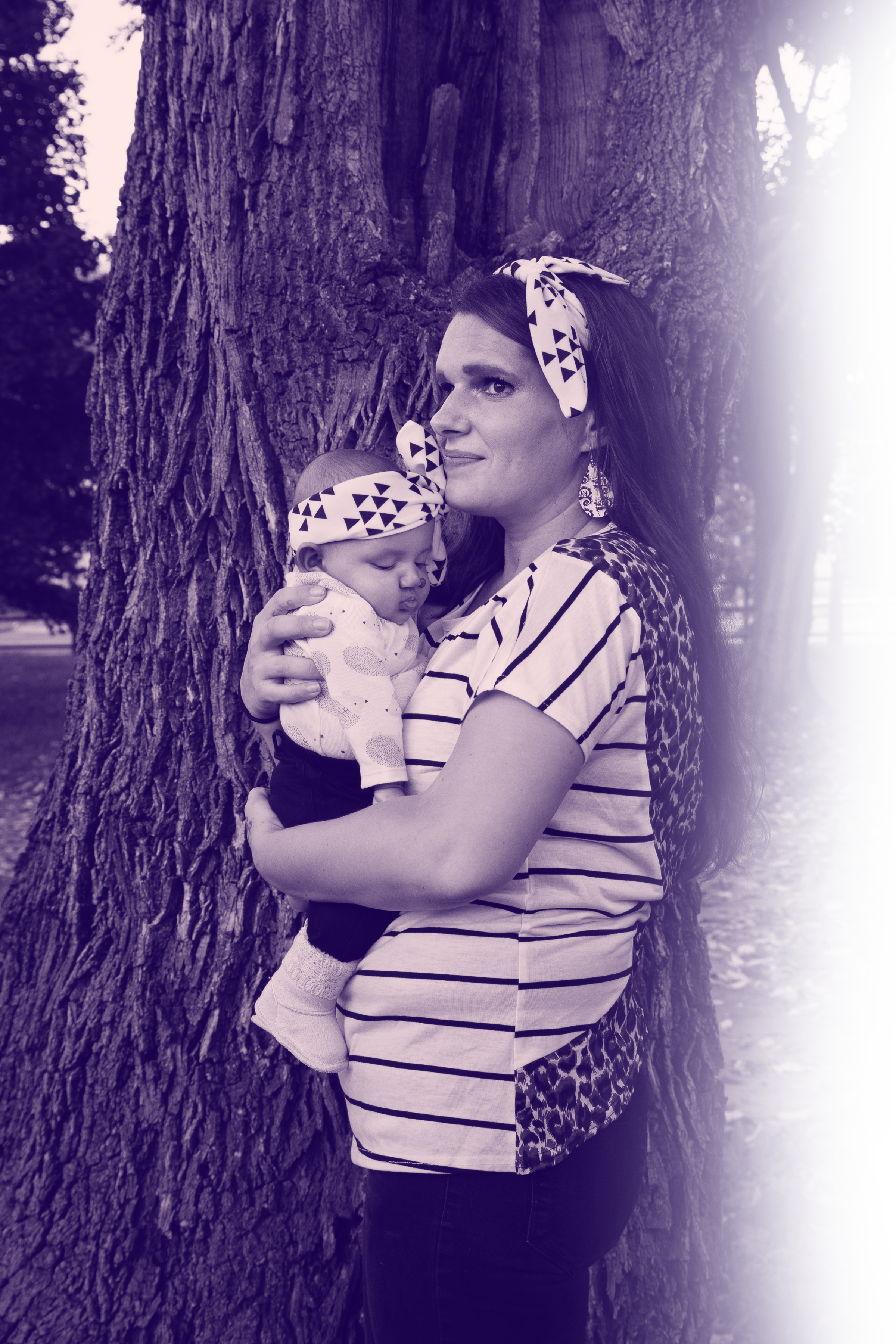I was a 20-year IV drug user and my best friend died from an overdose. I just had to do something different so that’s when I went back to school and became a certified addictions counselor and then got a master’s in social work. I had been studying and writing papers on syringe exchanges and safe injection sites so working for SWAN was a perfect fit.
In school, they really push that self-disclosure isn’t the best thing unless it’s helpful for the client, which I agree with. But I’ve found that because people know me from the streets and know that I have lived experience, that connection is huge. It helps build relationships and trust in situations where that might not necessarily happen.
The way I try to approach stigma is just by being authentic and making sure that the people working with us are as open and real as possible. We can slowly affect the social stigma by continuing to do public education, but on the individual level just by showing up every day, being consistent, and being real with people, it starts to change them. They start to see that these types of interactions are possible and they don’t have to be ashamed of themselves for whatever situation they’re in.
Everybody is pretty aware of Narcan and they know to keep it on them, especially in this neighborhood. You’ll hear somebody yelling down the street, “Narcan! Narcan!” and somebody will come help. Or they know if they see our van they can flag us down. We have folks who come back and say, ‘I used my kit’ and they’ll report what happened.
The public health department has been doing an incredible job collecting overdose data. Every week they send out a list of all the overdoses that have happened in the city. It doesn’t give any personally identifiable information, but it’ll say the street corners so then we know an area is kind of hot and can make sure that we go there and give Narcan out.
We do a needle buyback program to motivate people to bring back used needles—we give like $10 for 50 used syringes. On Saturday mornings, there’s a line of people all bringing their syringes back so we get thousands every week. It gets the needles off the street and it helps the folks out by giving them a few bucks. We have a limit of 100 syringes per person but if we had more funding we’d be able to collect way more.



